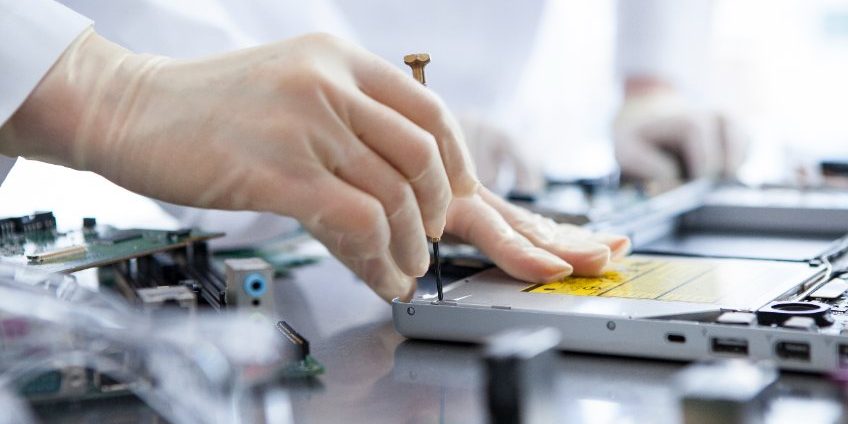Organic electronics has the potential to revolutionize the technologies of the future. In fact, there are global companies that are already incorporating organic electronics in their products today such as Samsung and LG Electronics. While having an IPC Certification can help boost your technical and professional career in the electronics manufacturing industry, learning today about organic electronics and other promising technologies can help you quickly and effortlessly adapt to the dynamic innovations of the future.
What is Organic Electronics?
Organic electronics is a branch of modern electronics as well as a field in materials science that focuses on polymers, small molecules and other organic materials which possess electrical conductivity and other desirable electronic properties.
If you’re running a factory in the electronic manufacturing industry, upgrade your employees’ technological knowledge and skills by partnering with a dependable institution to organize on-site IPC training sessions.
What makes it “organic”?
The materials used in organic electronics are composed of carbon-based molecules or polymers made through synthetic procedures in the fields of polymer chemistry and organic chemistry. Carbon, which is the same molecule of living things, is generally viewed as a great insulator in almost all technological and electrical applications. It was around 1862, however, when electrical conductivity was discovered in organic materials.
Promising benefits of organic electronics
Organic electronics may still be in its infancy especially in terms of commercial application, but the properties of organic-based materials provide many promising advantages compared to those used for traditional electronics based on silicon and conventional inorganic conductors.
- Helps in building a more accessible and sustainable electronic industry considering that a person is surrounded by as many as a thousand processors every day and that computers are a major part of our lives.
- The biosensing properties of organic materials make them ideal for detecting biomarker levels in the human body, toxins in the environment, and TNT and other explosives.
- Their high flexibility and stretchability allows bio-electronics to conform to the moving parts or the curvatures of the human body as well as in other applications such as textile, solar cells, machineries and automobiles.
Ensure you’re on top of the latest in the electronic manufacturing industry by learning about organic electronics and other technologies with a promising future and by passing your IPC Certification exams with flying colors today.
Modern-day organic electronics
Here are some current applications and/or research on organic electronics.
-
Organic field-effect transistors (OFETs)
Integrated circuit manufacturers are able to create OFETs at low or room temperature on plastic and other flexible substrates which may otherwise be damaged by the high-temperature manufacturing requirement of traditional silicon-based electronics. Furthermore, OFETs are sensitive to chemical and biological components, making them ideal for use in biomedical sensors and other biological applications.
-
Organic thin-film transistors (OTFTs)
Circuits are fabricated on a transparent and flexible organic substrate. For example, the flexible OTFTs are used to create electronic skins with sensing capabilities. The technology could lead to the creation of prosthetics with tactile sensitivity as well as artificial skin for burn patients. OTFTs are also being fabricated in banknotes as an anti-counterfeiting measure.
-
Organic light-emitting diodes (OLEDs)
OLEDs are display technologies made of organic and hybrid materials layered together between electrodes. Their electroluminescent property allows them to generate their own light, eliminating the need for a backlight unlike traditional display technologies. They are also more energy efficient and use less power than their backlight-dependent counterparts. Some of their modern-day applications include Samsung’s Galaxy range of smartphones and LG Display’s OLED TVs.
-
Organic Photovoltaics (OPVs)
OPVs or organic solar cells are currently in their research stages and are not yet commercially available. The aim for OPVs is to create sustainable, low-energy and low-cost solutions than the earlier generations of solar technologies.
Improve your electronic manufacturing knowhow with onsite training
If you own or manage an electronic manufacturing facility, bring your technical workforce to the next level with the on-site IPC training offered by Blackfox. With the program’s systematic training approach, your establishment can enjoy substantial improvements in employee morale, productivity, quality and profit. Get in touch with us today.






